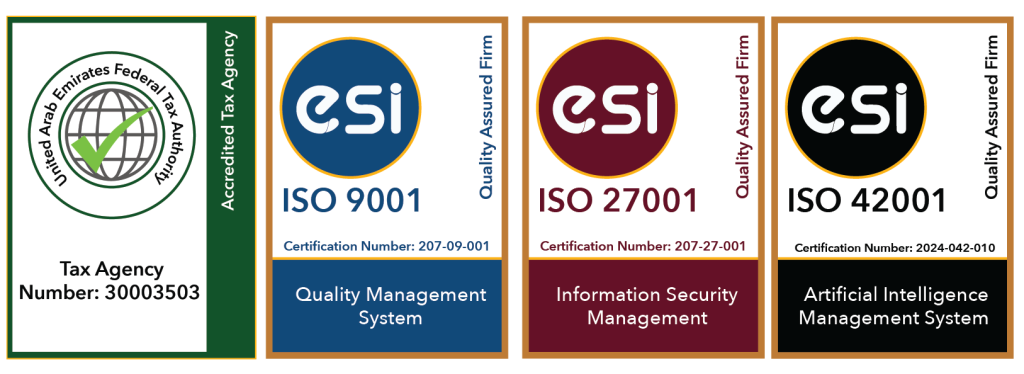A QFZP may be eligible to retain a 0% corporate tax rate, provided it meets the Qualifying Income rules, substance requirements, and other obligations, in strict compliance with the Decree-Law and relevant Cabinet and Ministerial Decisions, including latest Ministerial Decision No. 229 of 2025 on Qualifying Income (which replaces the earlier Decision No. 265 of 2023).
This preferential treatment reflects the UAE’s objective of maintaining Free Zones as a key driver of foreign investment and economic development, while at the same time controlling inappropriate use of Free Zone entities.
How Long Can the 0% Corporate Tax Rate Apply?
A QFZP may retain the 0% corporate tax rate for the period stipulated under the applicable Free Zone legislation and subject to continued compliance with the QFZP rules.
Retaining QFZP status is not automatic. The conditions must be satisfied on a continuing basis. If at any point the conditions are breached, the entity will revert to the regular 9% corporate tax rate, applied from the start of the relevant tax period and for the four subsequent tax periods.
What Conditions Must Be Met to Qualify as a QFZP?
To be recognised as a Qualifying Free Zone Person, the business must:
- Be incorporated, established, or registered in a qualified Free Zone.
- Maintain adequate substance in the UAE, including:
- Conducting core income-generating activities (CIGA) within the Free Zone.
- Employing qualified personnel in proportion to the business activity.
- Maintaining appropriate premises and operating expenditure within the UAE.
- Derive qualifying income as defined under Ministerial Decision No. 265 of 2023.
- Operate core activities from the Free Zone.
- Not elect to be subject to corporate tax at the standard rate.
- Comply with transfer pricing (TP) rules and record-keeping obligations.
Failure to continuously meet these conditions may result in the business losing its QFZP status and application of the standard 9% corporate tax rate.
Qualifying vs. Non-Qualifying Income
The Corporate Tax Law defines Qualifying Income under Ministerial Decision No. 265 of 2023 regarding Qualifying Activities and Excluded Activities for the purposes of Federal Decree-Law No. 47 of 2022.
Qualifying income includes:
- Transactions with other Free Zone Persons.
- Income from qualifying Free Zone activities.
- Income from qualifying intellectual property.
Non-qualifying income includes:
- Income from immovable property outside the Free Zone.
- Income attributable to foreign or domestic permanent establishments.
- Other income explicitly excluded under Ministerial Decision No. 265 of 2023.
Businesses should carefully assess their sources of income, as misclassification could result in loss of QFZP status.
Transfer Pricing Obligations for QFZPs
Transfer pricing compliance is a critical requirement for maintaining QFZP status. All transactions with related parties must follow the arm’s length principle, ensuring that prices reflect market conditions and comparable independent transactions.
Required Transfer Pricing Documentation
QFZPs may need to prepare:
- Transfer Pricing Disclosure Form (TPDF): Required where aggregate related-party transactions exceed AED 40 million per financial year.
- Connected Person Schedule: Required where payments or benefits provided to a connected person (together with its related parties) exceed AED 500,000.
- Transaction Category Disclosure: Once the AED 40m threshold is met, individual categories above AED 4 million must be disclosed.
- Master File and Local File: Required where revenue or group thresholds under the UAE CT Law and FTA guidance are triggered.
Even if thresholds are not reached, disclosures may still be mandatory in the corporate tax return. All documentation must be retained for at least five years from the end of the relevant tax period.
Permitted Transfer Pricing Methods
The FTA allows the following arm’s length methods:
- Comparable Uncontrolled Price (CUP) Method – Compares prices with transactions between unrelated parties.
- Resale Price Method (RPM) – Determines resale margin on goods purchased from related parties.
- Cost Plus Method (CPM) – Adds an appropriate markup to the cost of goods or services supplied to related parties.
- Transactional Net Margin Method (TNMM) – Evaluates net profit relative to a base such as sales, assets, or costs.
- Profit Split Method – Allocates combined profits among related parties according to contributions to value creation.
Businesses must select the method most suitable for the transaction type, comparable availability, and reliability of results. Non-compliance may result in penalties and jeopardize the 0% tax rate eligibility.
Reporting & Documentation Requirements
In addition to meeting the above conditions, QFZPs must also comply with the following reporting obligations:
- File an annual corporate tax return.
- Maintain adequate records demonstrating compliance.
- Provide evidence of substance in the UAE.
- Prepare and retain transfer pricing documentation, where applicable.
- Prepare and file audited accounts, subject to Free Zone-specific thresholds.
Incomplete or inaccurate reporting may result in penalties and loss of QFZP benefits.
Conclusion
While the core QFZP rules were issued in 2023–2024, the Ministry of Finance and Federal Tax Authority continue to publish implementing guidance and ministerial decisions. Free Zone businesses should monitor these updates closely.
This means carefully assessing whether they meet the current QFZP eligibility criteria, reviewing the nature of their income and potential exposure, and ensuring that appropriate transfer pricing policies and documentation are in place.
Large multinational groups should also consider the UAE’s adoption of the global minimum top-up tax (15%), which may affect consolidated group effective tax outcomes.
By preparing early and addressing these requirements, companies can position themselves to secure the benefits of the 0% corporate tax rate while maintaining full compliance with the law.
About SimplySolved
SimplySolved is an FTA Accredited Tax Agency with ISO 9001 Quality, ISO 27001 Information Management, and ISO 42001 Compliance Certification. We offer a quality-based approach to tax, accounting, and compliance services, supported by a dedicated team of certified professionals.
Our services are designed to help you understand and comply with UAE regulations, reduce risk, and make informed business decisions. With extensive local experience, we partner with clients to implement practical solutions tailored to their objectives.
This article provides high-level guidance only and is not a substitute for legal or tax advice. For advice on your specific circumstances, we encourage you to seek professional guidance. If you would like to speak to us, you may contact us for a no-obligation consultation.





